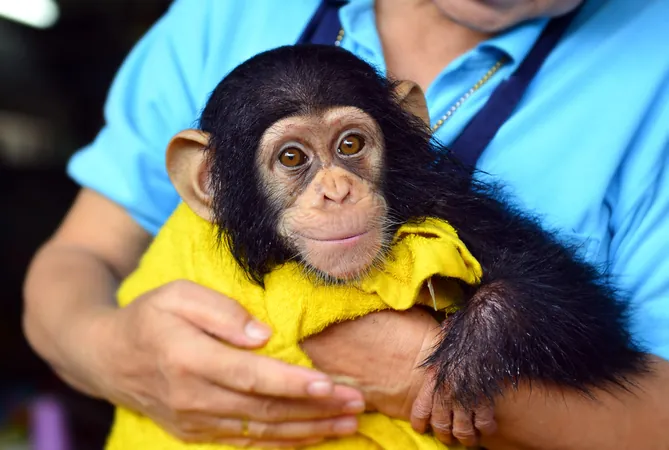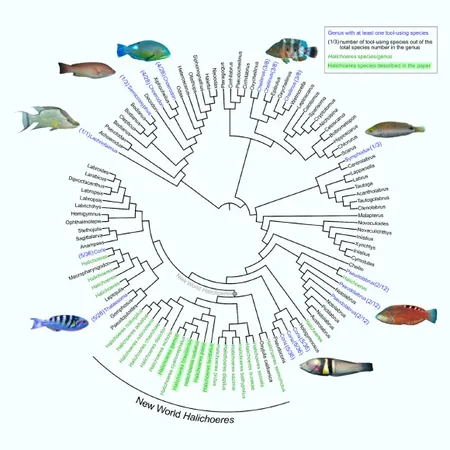
Shocking Study Reveals the Astonishing Differences Between Human Brains and Chimpanzees!
2025-04-01
Author: Sarah
Recent claims that humans share 98.8% of their DNA with chimpanzees often lead to an oversimplified notion that we are nearly identical. However, a groundbreaking study reveals that understanding the relationship between these two species requires a much deeper examination than just genetic similarity.
The Study by Rogier Mars and His Team
In an enlightening exploration conducted by Oxford neuroscientist Rogier Mars and his team, researchers have challenged the conventional wisdom by diving into the intricate differences in brain organization between humans and our primate relatives. This pivotal study, highlighted in BBC’s ScienceFocus by science writer Tom Howarth, takes a fresh approach by utilizing publicly available MRI data to create detailed “connectivity blueprints” of the human brain, as well as those of chimps and macaques.
Beyond Size and Neuron Count
Unlike previous studies that often concentrate on physical size or neuron quantity, Mars emphasizes that the true distinction lies in how the brain is connected and organized. “To truly understand what's happening, you need to examine how the brain is organized,” he states. This innovative perspective allowed the research team to unveil unexpected findings, particularly in areas of the brain that have been overlooked.
Findings in Brain Connectivity
Initially, the researchers anticipated that the most notable differences would be found in the prefrontal cortex—a region closely associated with complex thought processes, planning, and decision-making. While they did observe greater connectivity in this area, they were surprised to discover significant differences in other regions, especially in the temporal cortex, located just above the ear. Here, human brains exhibited a much more extensive network of connections than those of chimps.
The Importance of the Temporal Cortex
The temporal cortex is crucial for processing sensory information, including visual and auditory data and language capabilities. Given humanity's pronounced social nature and propensity for cooperation, these enhanced connections provide insight into why humans excel in communication and community dynamics.
Implications of the Study
As Howarth notes, “This suggests that there isn’t a single defining switch that makes humans uniquely human.” This finding contradicts the notion that a solitary evolutionary event led to human dominance, indicating that our evolutionary journey is likely far more complex and multifaceted than previously thought.
This study not only reshapes our understanding of human-chimp differences but also opens new avenues for exploring what truly makes humans unique. The implications extend beyond just our relationship with primates; they could reshape how we understand brain disorders, intelligence, and social behaviors across species. As researchers continue to peel back the layers of our evolutionary history, we may be on the verge of discovering even more mind-blowing insights that could redefine what it means to be human.



 Brasil (PT)
Brasil (PT)
 Canada (EN)
Canada (EN)
 Chile (ES)
Chile (ES)
 Česko (CS)
Česko (CS)
 대한민국 (KO)
대한민국 (KO)
 España (ES)
España (ES)
 France (FR)
France (FR)
 Hong Kong (EN)
Hong Kong (EN)
 Italia (IT)
Italia (IT)
 日本 (JA)
日本 (JA)
 Magyarország (HU)
Magyarország (HU)
 Norge (NO)
Norge (NO)
 Polska (PL)
Polska (PL)
 Schweiz (DE)
Schweiz (DE)
 Singapore (EN)
Singapore (EN)
 Sverige (SV)
Sverige (SV)
 Suomi (FI)
Suomi (FI)
 Türkiye (TR)
Türkiye (TR)
 الإمارات العربية المتحدة (AR)
الإمارات العربية المتحدة (AR)